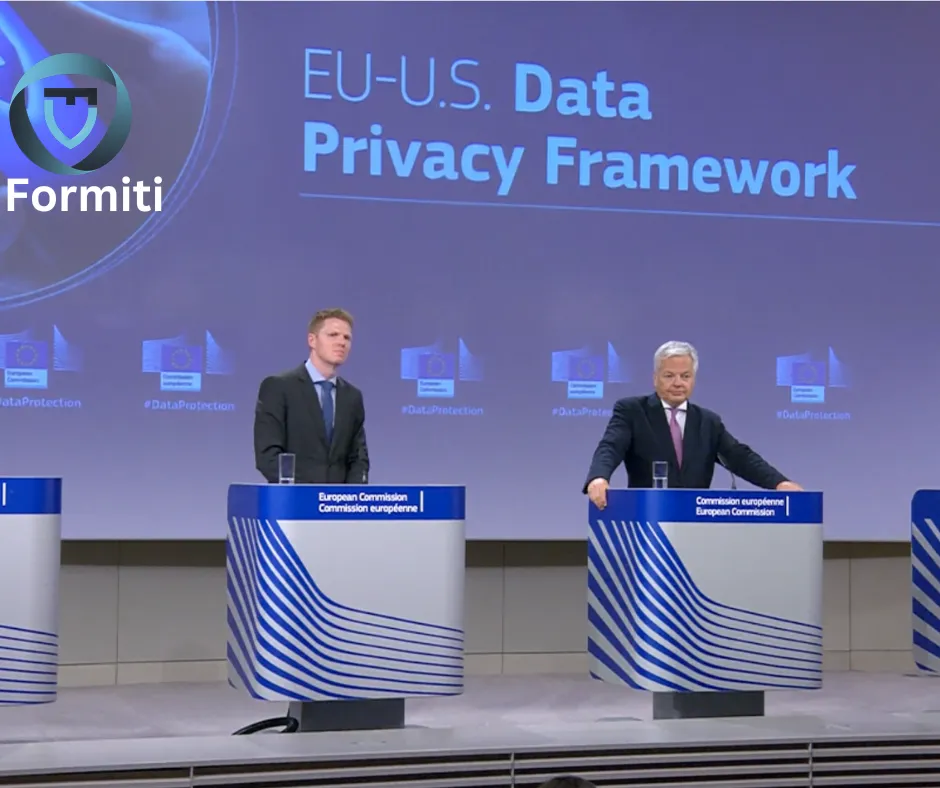Introduction
On July 10, 2023, the European Commission made a significant decision that has far-reaching implications for data transfers between the European Union (EU) and the United States (US). This decision involved adopting the EU-US Data Privacy Framework’s Adequate Data Protection This article will explore what this adequacy decision entails and its impact on the data transfer landscape.
Understanding Adequacy Decision
An adequacy decision, as defined under the General Data Protection Regulation (GDPR), is a mechanism that allows personal data to flow freely and safely from the EU to a third country when that country offers a level of data protection comparable to the EU’s standards. This Adequate Data Protection decision simplifies data transfers, which no longer require additional conditions or authorisations.
The EU-US Data Privacy Framework adequacy decision addresses data transfers from any entity within the European Economic Area (EEA) to U.S. companies participating in this framework. It signifies that these U.S. companies adhere to privacy obligations that meet the EU’s standards.
Criteria for Assessing Adequacy
The adequacy assessment does not demand a replica of EU data protection laws. Instead, it seeks essential equivalence, considering core data protection principles, individual rights, independent oversight, and effective remedies. This comprehensive evaluation ensures that the third country offers high protection for personal data.
The EU-US Data Privacy Framework
The core of the adequacy decision revolves around the EU-US Data Privacy Framework. It evaluates the requirements and limitations of this framework concerning the access of personal data by US public authorities, especially for national security and criminal law enforcement purposes.
The EU-US Data Privacy Framework grants several new rights to EU individuals whose data is transferred to participating U.S. companies. These rights include access to data, correction, deletion, and various free redress mechanisms for mishandled data.
U.S. companies can certify their participation in this framework by committing to a detailed set of privacy obligations. These obligations encompass purpose limitation, data minimisation, data retention, data security, and data sharing with third parties. The administration and enforcement of compliance with these obligations fall under the purview of the US Department of Commerce and the US Federal Trade Commission.
Safeguards for Access by US Intelligence Agencies
One of the crucial elements in the adequacy decision is the US’s commitment to enhance safeguards for data accessed by its intelligence agencies. These safeguards include:
- Limiting Access: US intelligence authorities can access data only to the extent necessary and proportionate to protect national security.
- Enhanced Oversight: Surveillance activities by US intelligence services are subjected to heightened oversight to ensure compliance with limitations.
- Independent Redress Mechanism: An independent and impartial redress mechanism has been established. It includes the Data Protection Review Court (DPRC), which investigates and resolves complaints regarding data access by US national security authorities.
The New Redress Mechanism
The US Government has implemented a two-layer redress mechanism for handling complaints from individuals whose data has been transferred from the EEA to US companies. The tool addresses concerns about data collection and use by US intelligence agencies.
The process involves:
- Submission to National Authorities: Individuals can submit complaints to their national data protection authority, which will ensure proper transmission and provide information about the procedure and its outcome.
- Investigation by Civil Liberties Protection Officer: Complaints are first investigated by the Civil Liberties Protection Officer of the US intelligence community, ensuring compliance with privacy and fundamental rights.
- Appeal to Data Protection Review Court (DPRC): Individuals have the option to appeal the decision of the Civil Liberties Protection Officer before the DPRC. The DPRC, composed of non-government members, can investigate complaints, obtain relevant information from intelligence agencies, and issue binding remedial decisions.
- Special Advocate: Each case is assigned a special advocate to represent the complainant’s interests, ensuring a fair trial and due process.
The Timeline and Impact of the Adequate Data Protection Decision
The Adequate Data Protection decision came into force upon adoption but will undergo regular reviews. The first review will occur within a year after adoption, with subsequent studies at least every four years. This periodicity ensures ongoing compliance and protection.
In conclusion, the EU-US Data Privacy Framework’s adequacy decision is a significant milestone in protecting personal data during international transfers. It simplifies data transfers to the US by providing that US companies adhere to EU data protection standards. With safeguards in place and a robust redress mechanism, individuals can have confidence that their data is handled carefully and privacy is maintained even when it crosses borders. The decision provides a framework for data flows that respects privacy and security.
Updating your registry of processing activities, privacy notices, and data processing contracts with your US Data Processors will be necessary in the future. Formiti Data International UK Ltd provides a full range of global data privacy services.

